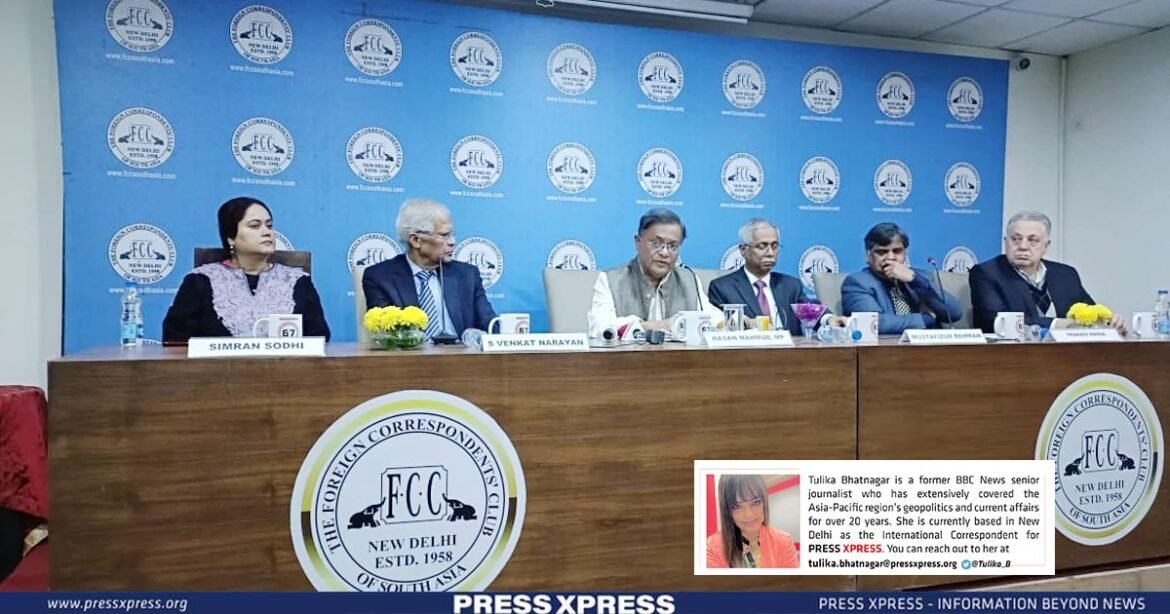In his first visit to India as Bangladesh’s foreign minister, Hasan Mahmud stressed that the Sheikh Hasina government will uphold the values of democracy and continue to forge stronger ties with India.

Mahmud thanked India for its support not only in the recently held elections but also in the independence war of 1971. Addressing foreign journalists at the Foreign Correspondents’ Club (FCC) of South Asia on 8 February, Mahmud spoke on issues of concern as well as the future direction of foreign policy.
“I had a very good discussion with the Indian foreign minister S Jaishankar. We discussed all issues regarding cross-border security, Rohingya issues, Teesta water sharing dispute, power sharing, and connectivity,” he said.
Addressing a question by FCC President S Venkat Narayan about his future foreign policy initiatives, Mahmud said that Bangladesh would be keen to diversify its ties within the (Asia) region.
Mahmud also spoke to PressXpress exclusively on the issues of regional ties, China, the anti-India campaign in Bangladesh, and other issues. An excerpt:

You mentioned the diversification of ties within the region. As foreign minister, what are your priorities in tilting your foreign policy towards China? How would you balance that against the competing interests of India within the region?
Mahmud: You have to understand that the very basis of Bangladesh’s foreign policy is “Friendship towards all, malice towards none”. We will follow this principle and yes, our ties with India are absolutely non-comparable with any other country in the world. We have fought our independence war together. Our ties are forged in blood. Over the years, there has been substantial growth in our bilateral ties. Our ties with China are strategic, as with any other country. It has absolutely no reason for India to worry.
The ‘India Out’ campaign seems to be growing in Bangladesh and has ruffled quite a few feathers in India’s ruling Bhartiya Janta Party (BJP). What’s your take on how this resentment will impact diplomatic relations?
Mahmud: There is no resentment. The anti-India sloganeering is being spread by some anti-national elements who try to utilize such issues from time to time but it is diminishing now. Bangladesh is a free society and people have the right to protest. There may also be anti-China and anti-US slogans. But none of these are relevant. On the other hand, the relevant fact is that India and Bangladesh have a bilateral trade value worth $16 billion. If there is resentment and if there is a lack of mutual trust, would such bilateral trade be possible?
What is happening on the Myanmar issue?
The current Myanmar unrest is worrying. On Wednesday alone, more than 340 Burmese troops crossed the border into Bangladesh, fleeing the ongoing conflict with ethnic armed groups. They have entered through the border along Chittagong and Rakhine. We have given them shelter. But on Thursday, no one has entered so far. I believe both India and Bangladesh can work on this issue together to ensure and enhance regional security.
On the Teesta water sharing dispute:
After discussions, I have the understanding that it is not a national government issue but a problem at the state government level. We are hoping that after the Indian general election, we will find a quick solution to the Teesta issue.


